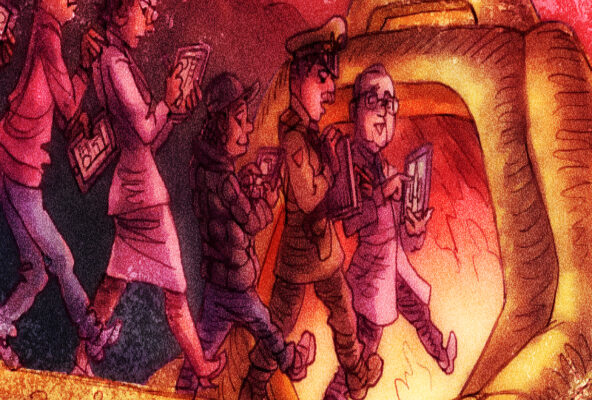The Louisiana Association of Business & Industry (LABI) has released their manifesto on how to improve the economy and overall quality of life in Louisiana – LA23. They summarize their key goals, of which there are four (located on p. 5):
WORKFORCE DEVELOPMENT & EDUCATION
Enhance efforts to find and develop talent by expanding work-ready skills, providing more training for in-demand occupations, and increasing the number of Louisianans in the labor force.
TAX & BUSINESS CLIMATE
Improve tax policies and the business climate, and position Louisiana in the top tier of states on national rankings.
SAFETY & RESILIENCY
Improve safety and resilience by reducing crime while improving health and wellness.
ECONOMIC DEVELOPMENT
Improve economic development outcomes through greater alignment, enhanced tools, and more support for innovation and entrepreneurship.
LABI deserves some credit for proposing items that don’t normally get much attention, such as incentivizing adequate housing construction to meet current demand, offering government grants to help current State citizens buy a home, and attention to the vitality of rural areas.
But at the same time, there is a lot missing. Where is religion/culture in all of this? Where is history? And the higher goals of education beyond job preparation (i.e., initiating the current generation into the long, unbroken river of history, culture, and traditions of their forebears)?
The Lord, God, and Savior Jesus Christ says that man shall not live by bread alone (St Matthew’s Gospel 4:4). LABI seems to suggest that we shall.
Those might seem like unfair questions to be asking of a business association, but they are not. Throughout history, it has been the wealthy class of men and women who have built churches and monasteries, patronized the arts, and so forth. Business owners in Louisiana occupy precisely this position of the wealthiest and most influential people in the State. Because of this, in addition to their advocacy of business interests, it is also their duty to build up the culture as well.
But myopic attention to economic concerns leads inexorably to cultural decline. Connor Tomlinson, writing at The European Conservative, observes:
The direction of civilisational travel is toward the commodification of every domain of human activity—the reorientation of all activity toward the generation of material abundance. With a patent filed for wearable technologies which use brainwaves to mine cryptocurrency while we sleep, it’s hard to write Illich off as paranoid.
To achieve this total commodification, sentimentality, human difference, and tradition must be ignored or eradicated in favour of seamless efficiency. Homogenisation happens per Hemmingway’s dictum on bankruptcy: gradually, then suddenly. It is innocuous and incremental, converting defunct properties into convenient and commercially-viable businesses—until one morning your local high-street is unrecognisable, colonised by international consumerism. The world becomes one unbroken chain of interconnected retail parks. We no longer live in nations, but regionally-managed outposts of a global franchise.
LABI and others are adamant about attracting citizens of other States to move to Louisiana, but this also is a harmful idea based on a faulty understanding of man:
This is what Renaud Camus meant by the ‘Great Replacement.’ An erasure of native cultures through demographic change is not necessarily a conspiracy to disenfranchise European peoples. Rather, it is a consequence of the liberal assumption of a universal human sameness stemming from their anthropology of the state of nature. The view of human beings as each representing a universal standard consumer unit—globo homo economicus—allows them to be instructed and relocated as the market demands. This mythology is facilitated by the fact that liberalism empowers innovation to the extent of generating ample means of transportation, such that the international movement of goods and peoples comes to be construed as some inviolable ‘human right.’
Louisiana talk radio host Moon Griffon gave a great illustration of the reality and importance of a State’s native culture in his interview (22 Feb. 2024 program) with one of the headmen of Hose Source, who, like Mr. Griffon, is a sho’ nuff Cajun. Answering Mr. Griffon’s question about expansion of his Louisiana business into Pennsylvania, the owner replied to the effect of, ‘They’re different than we are.’ Mr. Griffon chimed in with ‘There’s no gumbo up there.’ Exactly! Louisiana for Louisianans; Pennsylvania for Pennsylvanians; Montana for Montanans. Enough with this obsession with a mobile workforce, with attracting outsiders and poaching families from other States (and countries further afield), as though State and local and international cultures were interchangeable. Uprooting people is damaging on a number of levels for them and for communities and ought to be greatly limited.
Deeply embedded in myopic economic development are the goals of technological innovation and dynamism. But these, too, come with a high cost:
As Jon Askonas said of Buckley-esque conservatism, shouting “Stop!” athwart history is a futile enterprise:
“[the] attempt, against the onslaught of revolutionary ideologies, to set aside foundational questions in order to make common cause in defence of the actually existing human order, failed because it neglected the true revolutionary principle: technological transformation.”
In pursuit of alleviating privation, liberalism incentivises the creation and adoption of these technologies. What James Orr calls “revolutionary dynamism” is not an accident; it is fuelled by liberalism’s core values, namely freedom and equality. . . .
In the inverse of grace-through-work, inequality is interpreted as a proxy for oppression—for, if human nature is universal, then an injustice must have befallen the poorer party along the way to produce a disparate outcome. In no longer being neutral about liberal values, the state and technology must therefore ensure equality, thereby granting universal freedom to all persons. (Hence why intersectionality was so readily adopted by liberal institutions.) Any desire or tradition which results in unequal outcomes must be disallowed in the presumed interest of the liberal subject. Thus, liberalism undoes itself, generating such universal material abundance that its night-watchman state and property rights, conceived under conditions of scarcity, are rendered obsolete. Chambers’ version is not a mutant strain, but the fulfilment of liberalism’s own stated values. Its progress theology produces what Robert Higgs called a “ratchet effect,” expanding the remit of the state under emergency circumstances until it achieves permanent omnicompetence.
Combined with a conception of a Godless mechanistic world, liberalism acted as an impetus to bring to fruition Francis Bacon’s vision of an “empire of man over things, founded on the arts and sciences alone.” But instead, we have subordinated human nature to the instruments of mastery. As Carl Schmitt warned, “A society built exclusively on progressive technology would thus be nothing but revolutionary”—hence the high rates of anxiety over our state of impermanence, and a body politic lurching between perma-crises, which characterises modernity.
By focusing solely on economic matters, LABI and other business associations will eventually undermine the very existence of their members’ operations, ushering in a brutal, ugly, technocratic society managed by an all-powerful government. And all classes of society will suffer because of their narrow vision:
We have conquered the obscure and mysterious for mastery of the world, and wonder why we suffer from widespread dissatisfaction and depression. The technological spirit of liberal capitalism precludes the possibility of anything being held sacred. The resulting disenchantment means driving the awe out of life with a pitchfork.
. . . I am not the first to call this technological instinct demonic. Marx’s father mused on whether the “demon” which governed his son’s obsession with abolishing material inequality was “heavenly, or Faustian.” Schmitt observed that the “big industrialist has no other ideal than that of Lenin—an ‘electrified earth.’ They disagree essentially only on the correct method of electrification.” Schmitt believed the faux-neutrality of this expansion of technological progress would blind mankind to emergent existential threats—akin to the Antichrist. Marshall McLuhan called “the Prince of this World a very great electric engineer.”
Whether meant metaphorically or otherwise, to think of technology as animated by an anti-human spirit is a useful framework for understanding how it works. Technology propagates new, insatiable desires, and replaces human labour and relationships. It positions itself as a prerequisite for worldly participation when it becomes commonplace over generations. Hence C.S. Lewis’ warning that Bacon’s empire of man over nature would, in fact, be the empire of “some men over other men with Nature as its instrument.” With technologies resting like a dead hand on the sons of their craftsmen, they become like the denizens of Huxley’s World State, never wanting for Shakespeare because they know not what the designers have deprived them of. When a fault manifests in the system, and everybody has forgotten how to fix it, the technologically-contingent will be wiped out and nature will reclaim her territory.
This is the Moloch economy, a god that devours everything, including people, including children. We must free ourselves from it. There are alternatives.
There is a reason why people are drawn to agrarian communities like the Amish, the wilderness Christian monasteries, the Southern plantations, etc.: Living at nature’s pace, as Gene Logsdon put it in one of his book titles, is the way God intended man to live, as we may infer from man’s initial home in the Garden of Eden. Mr. Tomlinson tells us how we can begin a return to this better way of living: ‘The antidote to this collapse-at-scale is humility. The Christian virtue once constrained human ambition.’
The Orthodox Bishop Athanasios of Limassol, Cyprus, expands on that theme of humility in some introductory remarks about the Book of Revelation:
It would be good for us to reflect upon how we’ll walk this path and what our relationship with Christ will be like in eternity. If we think about it, we’ll stop hoping that we’ll amount to something. All this is transitory. And your earthly journey will come to an end. There will be no one left on earth who knows you, who remembers you. Only God remembers us. Only God remembers us all. At funerals, we say, “Memory eternal.” It’s not about us, humans. It’s nonsense when people say, “You did so much, and we’ll remember you forever!” You yourself will depart tomorrow, then I’ll follow after you. And how will you remember him? I don’t like these empty words.
I usually can’t stand listening to the speeches given at funerals. I fumble with my staff and pray to the Theotokos, “That’s enough, Most Holy Theotokos!” People say so many stupid things… Some kind of theater, playing with someone else’s pain. You can just say a few words of comfort without causing all this chaos. Unfortunately, we’ve turned this into a theater. God remembers man. God will always hold you in his memory. And when we sing: “May your memory be eternal, fathers and brothers worthy of blessedness and everlasting memory,” it means you’ll always remain in God’s memory. When God remembers you, it means you exist, that you’re alive, that you’re the likeness of God, that your spirit and your soul repose in God.
When God doesn’t want to remember you, doesn’t want to see you (not because He doesn’t want to, but because your soul has renounced Him, rejected the love of God, severed its connection with God, and renounced the eternal memory of God), it’s unfortunate for you. The Lord speaks about this in the Gospels. Try to spend the few years allotted to you on earth with dignity before God, so you can pass through the gates of eternity and stand before God pure, repentant, united with the grace of God, living in God, and having conquered death; so that you overcome corruption, overcome despair, so you don’t live far from God, but live eternally with Him. This is God’s victory over death, victory over corruption. This is our personal end.
In other words, all our stupendous technological dynamism won’t amount to much in the end, from the vantage point of eternity. What will matter is how well we lived our life. And we don’t need lots of gadgets, gizmos, and research and manufacturing plants to live a life pleasing to God.
To help give some balance to LABI’s recommendations, we recommend folks turn to Professor Allan Carlson’s book Third Ways, in which he explores some recent ventures and ideas to save mankind from the dangers of both communism and capitalism, culminating in a final section detailing what he calls the Family Way. This proposed economic/cultural system entails the following:
1. Treasure private property as the foundation of a free society. The Distributists, the agrarians, and the housewives and their mates understood that liberty requires a material foundation in land, home, and other real property, and that a true democracy puts such property in the grasp of nearly all its citizens. While mutual funds, stock certificates, and bonds are also valuable forms of ownership, they can never confer the autonomy offered by real or physical property.
2. Understand that the central social and political challenge is to keep competition and the quest for efficiency out of the family and the local community, and at the same time to keep altruism out of central governments. . . .
3. Defend the natural family economy through appeals to human biology and human history. Efforts in Sweden, America, and elsewhere to justify the autonomous home as more efficient or more scientific rested on a fatal error. Its advocates adopted a form of social and economic accounting unsuited to the dynamics of the home. The real family economy, as Chayanov explains, rests on the cooperation of the married couple and, more importantly, on the generation of children. History teaches that every healthy and sustainable culture builds on the biological triad of mother-father-offspring and jealously protects its integrity.
4. Place primary faith in cultural affirmations and defenses, and only secondary trust in state actions. . . .
5. Attempt to infuse religious energy into culture, politics, and economic life as the surest source of renewal. Secular campaigns on behalf of the family economy are unlikely to disturb the equilibrium of the Servile State. Only homo religiosus, Wilhelm Rӧpke’s name for man created in the image of God, can stand up to the servile heir of homo economicus. Even then, the members of each new generation must receive or otherwise acquire that form of enthusiasm and conviction, lest they falter, like Europe’s Christian Democrats in the 1960s.
6. Build on small acts. In the end, the Family Way means reconnecting everyday tasks with the great purposes of the Creator. Only then do common deeds bend toward transcendence. As the contemporary American agrarian Wendell Berry [actually, he’s a Southerner from Kentucky—W.G.] states, “it may be that our marriages, kinships, friendships, neighborhoods, and all our forms and acts of homemaking are the rites by which we solemnize and enact our union with the universe.” In this manner, the Family Way offers a way, perhaps, to overcome much of our alienation, to reconcile humankind with its created nature, to bring about a simple and yet profound coming home (ISI Books, Wilmington, Del., 2007, pgs. 184-6).
The Church and the family are the two pillars upon which Louisiana/Southern culture (and any other sane, traditional culture) is based. If they die, all of LABI’s efforts at reform are in vain. It behooves all well-meaning business owners, then, to do all that they can to support and strengthen those two bodies, without which life is unlivable, no matter how much economic growth a State may experience.
-By Walt Garlington

O I’m a good old rebel, now that’s just what I am. For this “fair land of freedom” I do not care at all. I’m glad I fit against it, I only wish we’d won, And I don’t want no pardon for anything I done.






Ach! What a welter of baseless anti-Semitic canards! The author may not have expressed them – but what is worse, he was *thinking* them.
The path is a biblical economic system.